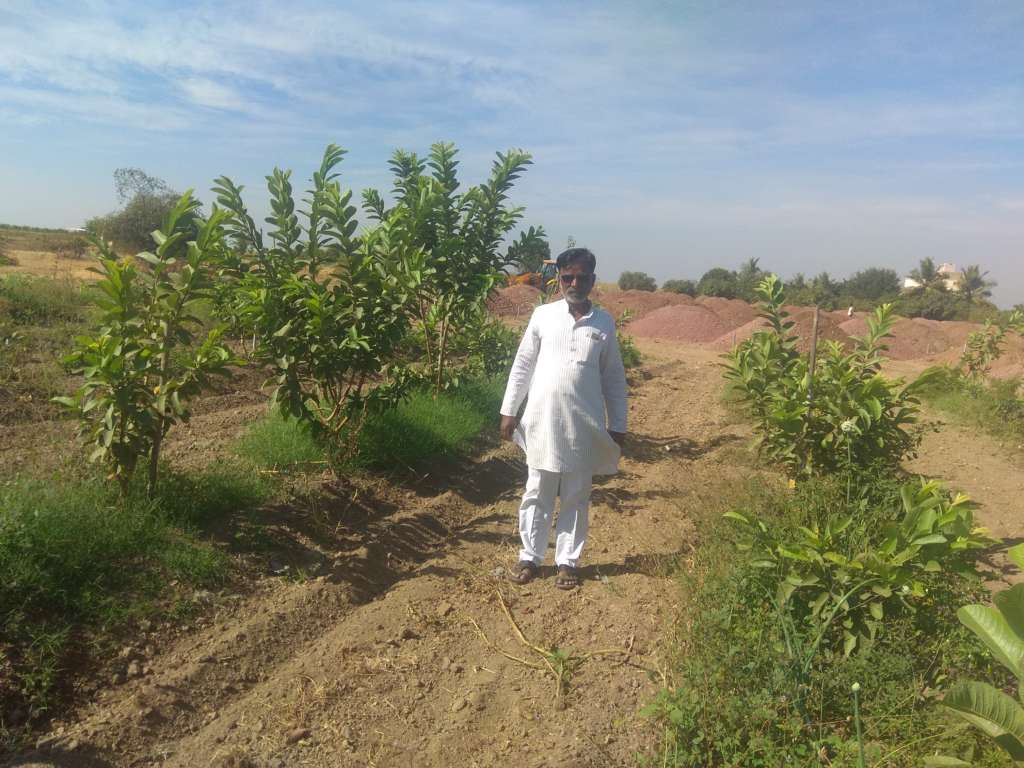We usually associate lush green crops with farming but it is a grim reality in several drought-prone areas in the country. It is almost impossible for our farmers to grow crops in a region which receives less than 400 mm in an entire year. However, this unimaginable task was made a reality by this man with a vision.
Bhajandas Pawar not only started farming in Kadbanwadi in Pune district of Maharashtra, but he also showed the courage of harvesting crops like sugarcane that require a lot of water. This was nearly a miracle because the village had been declared a drought-hit land where nothing could grow.

Bhajandas’ journey started after he received a bachelor’s degree in science and education, after which he bagged a well-paying government job. It seemed exciting at first but as he spent more time behind the desk, dissatisfaction crawled in and soon he decided to quit the boredom and return to village life, in 1988.
A teacher by profession, and after educating the youth for nearly 28 years, he was determined to improve the condition of his village. Today, because of his stupendous efforts, Kabanwadi has seen rapid development.
Staring at problems
After returning to his village Bhajandas delved into teaching. His daily routine comprised 96 km of travelling. With a population of 1,600, almost every house in the village had a government servant. Yet, within the radius of seven km from the village there was no mode of transportation available.
As the rainfall was erratic in the region there was no reliable source of irrigation. Thus, the region was declared a drought-prone area and the village did not produce even a single grain of crop.
Bhajandas was determined to change this situation and bring the village back to its glorious days. After gaining support from Anna Hazare, one of the best campaigners of India, Bhajandas took training of watershed management and then initiated his own movement. He was working on rainwater water harvesting as well as new crops that require less water.
However, this wasn’t a foolproof plan because of which he had to face several difficulties. It was tough to work on the problems while simultaneously motivating the youth to take part in this initiative.
Bhajandas didn’t give up and kept solving one problem after another while consistently moving forward. His initiative started receiving encouragement from many organizations. He diversified his horizons and also began promoting wildlife conservation and forest protection. For his exceptionally amazing work for saving the Indian gazelle (chinkara) from poachers, he received a support amount of Rs 1 crore from the Indian government.
Harvesting rain in a dry zone
Bhajandas’ efforts remind us of Gandhi’s vision for India where people living in villages contribute towards the development of their land instead of migrating to the cities. Inspired by Bhajandas, the locals are now actively involved in water conservation. They are cultivating pomegranates as the plant requires nominal amount water.

After a substantial period of time passed, positive results of water harvesting started surfacing. There was a time when the farmers had to solely rely on the rains for cultivating crops like jowar and bajra. However, the village is now abundant in itself and produces a healthy crop of pomegranate on more than 500 hectares of land. These high-quality fruits are also exported to metro cities like Pune, Hyderabad, Mumbai, and Bengaluru.
In an interview with KenFolios, Bhajandas says, “More than 200 hectares of land is being used to cultivate various crops like sugarcane, vegetables, and seasonal fruits. This has become a robust income source for the farmers of our village.”
Thanks to Bhajandas, now the young generation in the village does not migrate to cities after completing their education. Efforts of one man has set an exceptional landmark in the field of rural development. It is inspirational how Bhajandas brought technology to the fore and helped the entire village grow.
Looking For Startup Consultants ?
Call Pursho @ 0731-6725516
Telegram Group One Must Follow :
For Startups: https://t.me/daily_business_reads




